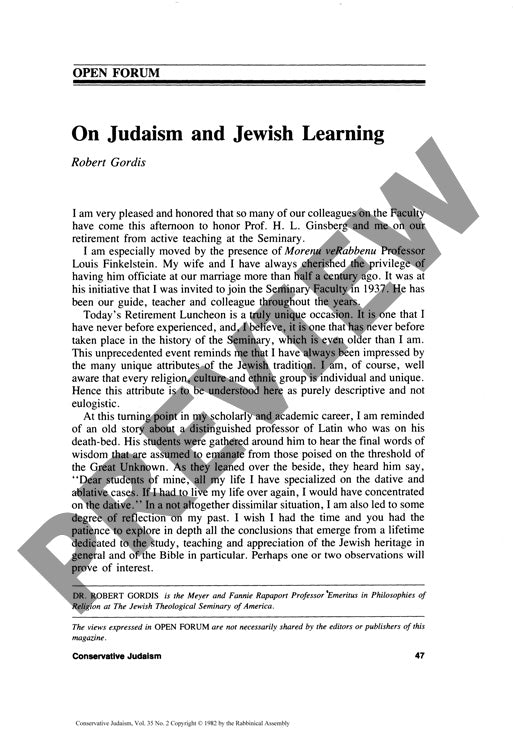On Judaism and Jewish Learning
Couldn't load pickup availability
Judaism's genius lies in its capacity to sustain creative tensions between seemingly opposing forces - a characteristic that shapes both Jewish thought and broader humanistic scholarship. Drawing from biblical, rabbinic, and contemporary sources, this retirement address at The Jewish Theological Seminary examines how Judaism navigates fundamental antinomies: particularism versus universalism, divine justice versus mercy, and torah lishmah (study for its own sake) versus torat hayyim (study for life's sake). Through qualitative analysis, the investigation reveals that exegesis functions more as an art than a pure science, demanding intuition, creativity, and empathy alongside technical expertise. Like medical practice, which synthesizes multiple scientific disciplines into an art of healing, scholarly interpretation inherently involves subjective and aesthetic elements. The findings demonstrate that productive tension - especially between objective scholarship and life-responsive learning - forms the essential imperative for Jewish scholarship. This understanding suggests that acknowledging the artistic nature of humanistic inquiry, while maintaining rigorous methodological standards, can foster more constructive scholarly dialogue and reduce academic antagonism.

More Information
-
Physical Description
-
Publication Information
Published 1982
ISBN
-
Publication Credits
Robert Gordis

